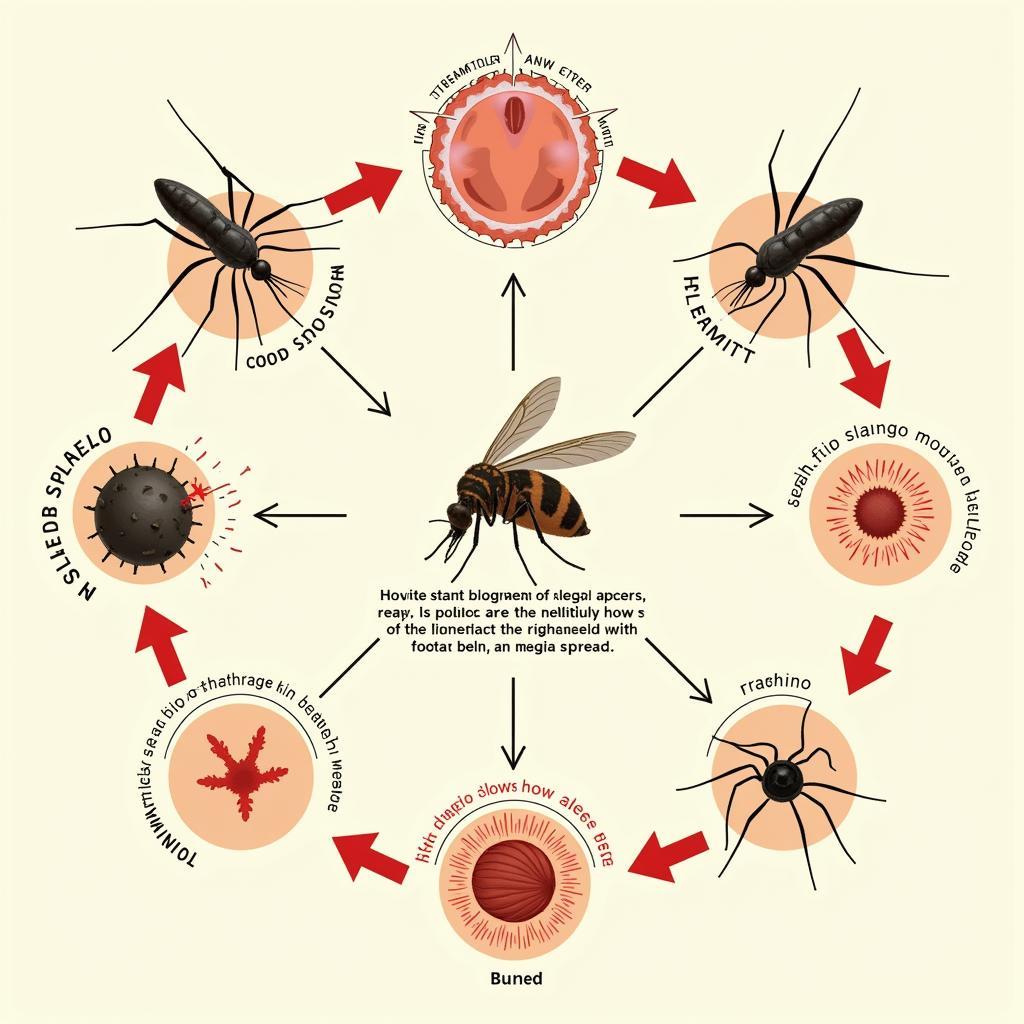Malaria is a serious health concern in Pakistan, especially during and after the monsoon season. If you’re planning a trip or reside in an area with a high incidence of malaria, taking malaria tablets is crucial for prevention. This guide provides comprehensive information about Malaria Tablets In Pakistan, empowering you to make informed decisions about your health.
Understanding Malaria and its Prevalence in Pakistan
Malaria is a mosquito-borne disease caused by a parasite called Plasmodium. It’s transmitted through the bite of infected female Anopheles mosquitoes, which primarily breed in stagnant water. Symptoms of malaria include fever, chills, sweating, headache, body aches, and fatigue.
Pakistan faces a significant burden of malaria, particularly in certain regions and during specific times of the year. The provinces of Sindh, Balochistan, and Khyber Pakhtunkhwa typically report a higher number of malaria cases.
Why Malaria Tablets are Essential for Protection
Malaria can be a life-threatening disease, especially if not diagnosed and treated promptly. Malaria tablets, also known as antimalarials, are medications that help prevent malaria infection. They work by killing the malaria parasites in your blood before they can multiply and cause illness.
 Malaria Transmission Cycle
Malaria Transmission Cycle
Types of Malaria Tablets Available in Pakistan
There are several types of malaria tablets available in Pakistan, each with its recommended dosage and method of administration. Some of the most commonly prescribed malaria tablets include:
- Atovaquone/Proguanil (Malarone): This combination tablet is taken daily, starting 1-2 days before travel to a malaria-risk area and continued for 7 days after returning.
- Doxycycline: This antibiotic is also taken daily, starting 1-2 days before travel and continued for 4 weeks after leaving the malaria-risk area.
- Mefloquine (Lariam): This medication is taken weekly, starting 2-3 weeks before travel and continued for 4 weeks after returning.
Important Note: It’s crucial to consult a healthcare professional or a travel medicine specialist to determine the most suitable malaria tablet for you. They will consider factors such as your medical history, travel itinerary, and individual risk factors.
How to Choose the Right Malaria Tablets for You
Selecting the appropriate malaria tablets depends on several factors, including:
- Your Travel Destination: The specific type of malaria parasite prevalent in your destination influences the choice of medication.
- Duration of Stay: The length of your trip determines the dosage and duration of prophylaxis.
- Medical History: Underlying health conditions, allergies, and current medications are crucial considerations.
- Pregnancy and Breastfeeding: Some antimalarials are not safe during pregnancy or breastfeeding, so it’s vital to inform your doctor if this applies to you.
- Cost and Availability: The availability and affordability of different malaria tablets can vary.
Tips for Preventing Mosquito Bites
While taking malaria tablets is essential, taking measures to prevent mosquito bites provides an extra layer of protection. Here are some helpful tips:
- Use Insect Repellent: Apply insect repellent containing DEET, picaridin, or IR3535 to exposed skin.
- Wear Protective Clothing: Wear long sleeves, long pants, and socks, especially during dawn and dusk when mosquitoes are most active.
- Sleep Under a Mosquito Net: Use a mosquito net treated with insecticide over your bed, especially if your accommodation is not air-conditioned or properly screened.
- Eliminate Breeding Sites: Dispose of stagnant water around your living areas to prevent mosquito breeding.
What to Do if You Develop Malaria Symptoms
Even if you’ve taken malaria tablets, it’s crucial to be vigilant for symptoms. If you experience fever, chills, or any other malaria-like symptoms during or after your travels, seek medical attention immediately. Early diagnosis and treatment are vital for preventing complications.
Conclusion
Taking malaria tablets is essential for anyone traveling to or residing in malaria-endemic areas of Pakistan. By understanding the different types of malaria tablets available, consulting a healthcare professional, and taking preventive measures against mosquito bites, you can significantly reduce your risk of contracting this potentially life-threatening disease. Remember, your health is paramount, and taking proactive steps towards malaria prevention is crucial for a safe and enjoyable experience.
FAQs about Malaria Tablets in Pakistan
1. Where can I buy malaria tablets in Pakistan?
Malaria tablets are available by prescription from licensed pharmacies across Pakistan.
2. Are there any side effects of malaria tablets?
Some individuals may experience mild side effects from malaria tablets, such as nausea, dizziness, or vivid dreams.
3. Can children take malaria tablets?
Yes, there are specific malaria tablets and dosages suitable for children.
4. Do I need to take malaria tablets even if I’m only traveling to a city in Pakistan?
The need for malaria tablets depends on the specific city and the time of year.
5. Can I get malaria even if I’ve taken malaria tablets?
While malaria tablets significantly reduce the risk of infection, no medication offers 100% protection.
For any further assistance or inquiries, please do not hesitate to contact us at +923337849799, email us at [email protected], or visit us at Dera Ghazi Khan Rd, Rakhni, Barkhan, Balochistan, Pakistan. Our dedicated customer support team is available 24/7 to assist you.